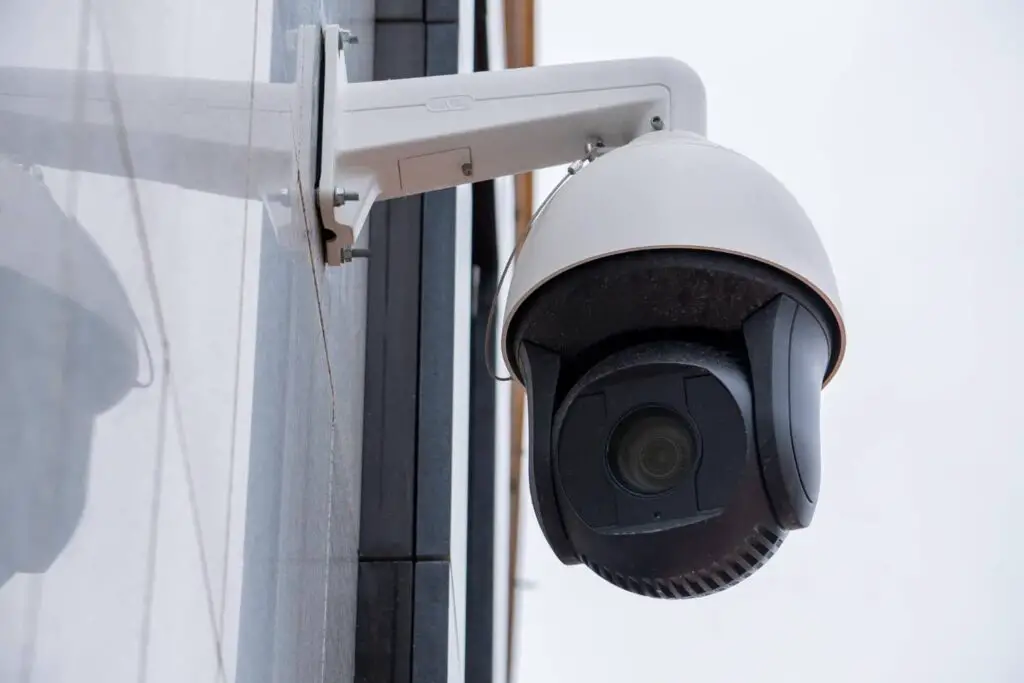CCTV for Small Businesses: Cost-Effective Solutions for Security

CCTV for Small Businesses: Cost-Effective Solutions for Security
As a small business owner, ensuring your establishment’s security is crucial. With rising crime rates targeting small businesses, it’s time to explore cost-effective CCTV solutions for robust protection. This post guides you through key considerations when selecting such a system. We’ll discuss factors for budget-friendly choices, the latest technological advancements, strategic camera placement, storage optimization, and core feature prioritization while staying budget-conscious. We’ll also explore how modern CCTV integrates with smart technology for enhanced monitoring and remote access, further optimizing security. By the end, you’ll have the insights needed to make informed decisions that protect your business assets and provide peace of mind.
The Growing Need for Enhanced Security
Recent statistics paint a concerning picture:
- Small businesses are 300% more likely to be burglarized than residential properties.
- There were over 2 million burglaries reported in 2019 across the United States.
- The average financial loss faced by small businesses from burglaries is estimated to be around $8,000.
This data highlights the imperative for small business owners to invest in robust security solutions. Traditional measures like alarms and locks are no longer enough. Advanced CCTV systems with intelligent video analytics and remote monitoring have become essential to mitigate risks.
Here is another interesting study made by Statista to demonstrate the CCTV Adoption Rates by Business Size.
- Small businesses: 18%
- Medium businesses: 39%
- Large businesses: 93%
{bar chart}
The Evolution of CCTV Technology
CCTV systems have come a long way from just surveillance cameras. With emerging technologies like AI and cloud computing, they now offer:
- Enhanced Video Analytics – Modern systems use AI algorithms to identify faces, objects, and suspicious activity accurately. This enables real-time alerting and evidence gathering.
- Remote Access and Control – Cloud connectivity allows small business owners to monitor footage and control cameras using smartphones from any location.
- Expanded Coverage – Wireless cameras enhance flexibility in installation without expensive cable routing and allow easy repositioning of cameras if needed.
- Superior Data Security – Encrypted data storage in the cloud safeguards footage against breaches, leaks, and manipulation.
- Scalability – Systems can be expanded by adding cameras if a business grows or its needs change.
Key Factors in Selecting a Cost-Effective System
While top-of-the-line CCTV systems offer cutting-edge features, small business owners need solutions that deliver maximum value at an affordable price point. Here are some key factors to evaluate:
1. Wired vs. Wireless Cameras
Wired cameras require running data cables from the cameras back to the NVR, but provide reliable connectivity. For small business owners in locations like Fort Lauderdale, Florida, hiring a professional data cabling Fort Lauderdale Florida company can ensure neatly run cables and optimal placement.
Wireless cameras are quick to set up but can have limitations in placement due to transmission range.
| Wired | Wireless | |
| Video Quality | Excellent | Good |
| Installation Cost | High | Low |
| Reliability | Very High | Moderate |
2. Cloud vs. On-Premise Storage
Storing footage on the cloud allows scalable offsite data storage and remote access but requires monthly fees. On-premise storage like NVRs offers a one-time cost but limits remote viewing.
3. Number of Cameras
Determine the optimal number of cameras based on coverage area and key vulnerability points like entrances, cash registers, inventory storage, etc. Avoid gaps in coverage.
4. Video Resolution
Higher-resolution cameras provide enhanced details but require more storage and network bandwidth. For small spaces, 1080p is often sufficient.
5. Latest Features
Focus on core functionalities like high-quality footage, motion detection, night vision, etc. Advanced features like facial recognition can be added later if required.
6. Maintenance Needs
Factor in the costs of maintenance tasks like periodic camera replacement and software updates. Some cloud solutions reduce this overhead substantially.
7. Installation Costs
Most set-up consumes a lump sum of money on uts installation. According to HomeBase, here are a list of necessary components and its price to set up a security solution.
- Cameras: $300 x 4 cameras = $1200
- NVR: $200
- Hard Drives: $150
- Cables & accessories: $100
- Installation: $300
- Total: $1950
Solutions Optimized for Small Businesses
Entry-Level Cloud Systems
These are bundled solutions like Nest or Ring tailored for easy setup by small businesses. They offer:
- Affordable plans with 3-5 cameras
- Cloud storage and monitoring
- Mobile app access
- AI motion and audio detection
Mid-Range NVR Kits
These bundled NVR-based systems like Lorex provide robust capabilities:
- NVR with up to 16 channels
- 4-8 wired IP cameras
- Up to 4TB on-premise storage
- Remote viewing capability
- Expansion potential with more cameras
Enterprise-Grade Customizable Systems
Top-tier vendors like Axis offer highly customizable systems:
- Wide selection of advanced wired and wireless cameras
- On-premise and cloud-based storage options
- AI analytics like object classification and loitering detection
- User-friendly management interfaces
- Future-proof designs and integration capabilities
Conclusion
Crafting a successful CCTV system for your small business involves assessing security needs and customizing camera placement. Balance wired and wireless options with cost and quality in mind. Storage choices, whether cloud or on-premise, should consider both immediate and long-term expenses. Prioritize high-resolution footage and motion detection for effective threat identification. Plan for maintenance and upgrades to ensure system reliability.
Investing in an affordable yet robust CCTV system tailored to your small business provides invaluable protection. Finding the right balance between capabilities, costs, and ease of management is crucial. Now is the time to enhance your small business security, safeguard assets, and create a secure environment for business growth.
FAQs
- Is professional installation necessary for CCTV systems?
For small businesses with basic DIY skills, self-installation of entry-level cloud systems like Nest is feasible. However, mid-range and advanced systems are best installed by security professionals to ensure optimal placement, configuration, and performance.
- How long is CCTV footage stored before being recorded?
Storage duration depends on video resolution and storage capacity. Many cloud systems offer 30-day storage with higher plans having 60-90 days. For on-premise NVRs, storage varies from 2 weeks up to a month typically before loop recording.
- What kind of maintenance is required for CCTV systems?
Periodic tasks include checking camera alignments, replacing faulty cameras, updating software and firmware, replacing worn cables, cleaning camera lenses, and testing motion detection. Cloud systems have lower maintenance needs compared to on-premise NVRs.
Lucas Noah is a tech-savvy writer with a solid academic foundation, holding a Bachelor of Information Technology (BIT) degree. His expertise in the IT field has paved the way for a flourishing writing career, where he currently contributes to the online presence... Read more


